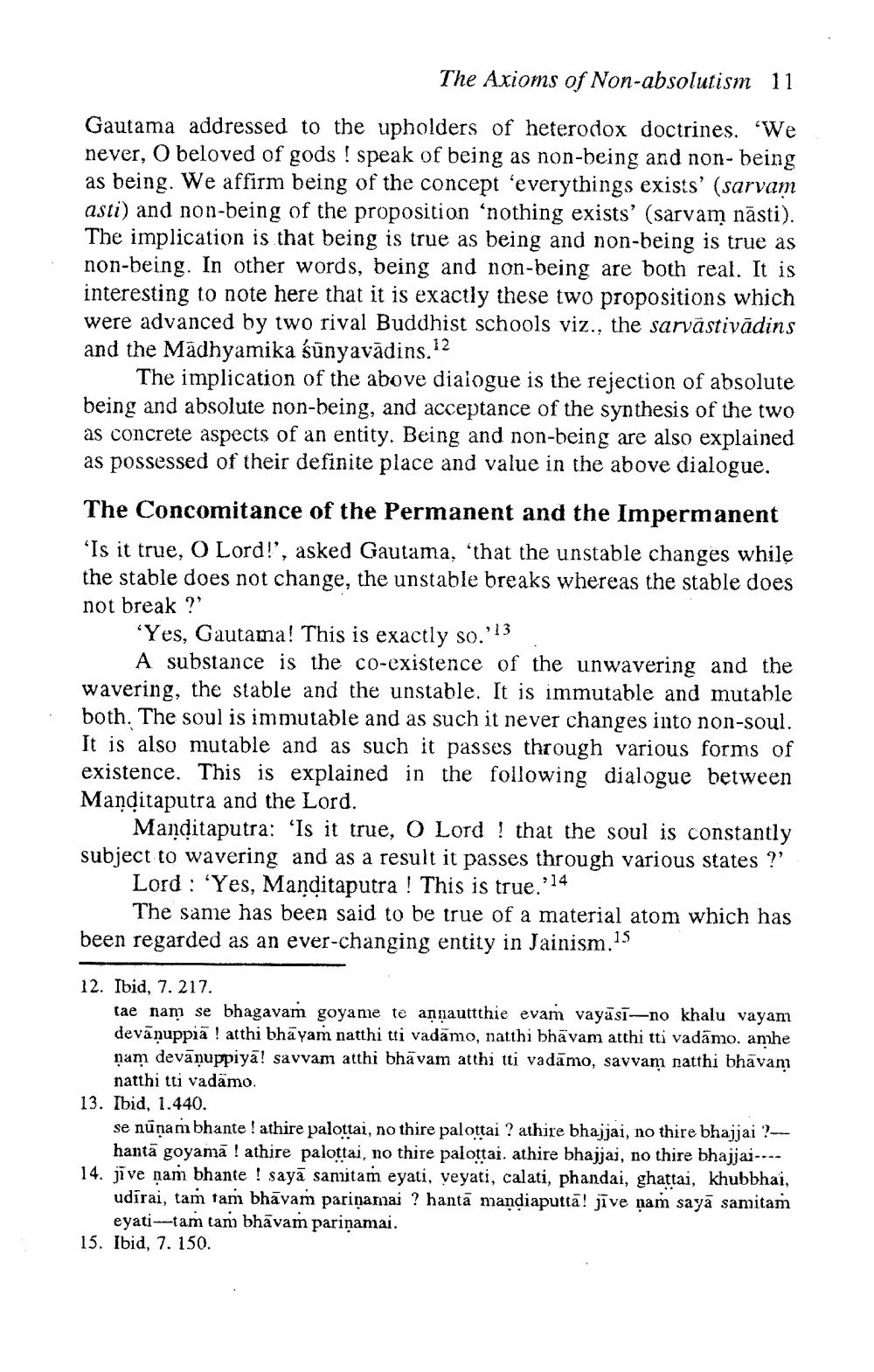________________
The Axioms of Non-absolutism
11
Gautama addressed to the upholders of heterodox doctrines. “We never, O beloved of gods ! speak of being as non-being and non-being as being. We affirm being of the concept 'everythings exists' (sarvam asti) and non-being of the proposition ‘nothing exists' (sarvam năsti). The implication is that being is true as being and non-being is true as non-being. In other words, being and non-being are both real. It is interesting to note here that it is exactly these two propositions which were advanced by two rival Buddhist schools viz., the sarvāstivādins and the Mädhyamika sünyavādins. 12
The implication of the above dialogue is the rejection of absolute being and absolute non-being, and acceptance of the synthesis of the two as concrete aspects of an entity. Being and non-being are also explained as possessed of their definite place and value in the above dialogue.
The Concomitance of the Permanent and the Impermanent 'Is it true, O Lord!', asked Gautama, 'that the unstable changes while the stable does not change, the unstable breaks whereas the stable does not break?'
“Yes, Gautama! This is exactly so.??3
A substance is the co-existence of the unwavering and the wavering, the stable and the unstable. It is immutable and mutable both. The soul is immutable and as such it never changes into non-soul. It is also mutable and as such it passes through various forms of existence. This is explained in the following dialogue between Manditaputra and the Lord.
Manditaputra: 'Is it true, O Lord ! that the soul is constantly subject to wavering and as a result it passes through various states ?'
Lord : 'Yes, Manditaputra ! This is true.'14
The same has been said to be true of a material atom which has been regarded as an ever-changing entity in Jainism.15
12. Ibid, 7.217.
tae nam se bhagavam goyame te annauttthie evam vayasi-no khalu vayam devānuppia ! atthi bhāyam natthi tti vadāmo, natthi bhāvam atthi tti vadāmo. amhe nam devānuppiya! savvam atthi bhāvam atthi tti vadāmo, savvam natthi bhavam
natthi tti vadamo. 13. Ibid, 1.440.
se nūņam bhante ! athire palottai, no thire palottai ? athire bhajjai, no thire bhajjai?--
hantā goyamā ! athire palottai, no thire palottai. athire bhajjai, no thire bhajjai---- 14. jive nam bhante ! sayā samitam eyati, veyati, calati, phandai, ghattai, khubbhai,
udirai, tam tam bhāvam parinamai ? hantā mandiaputtā! jīve nam sayā samitam
eyati tam tam bhāvam parinamai. 15. Ibid, 7. 150.




